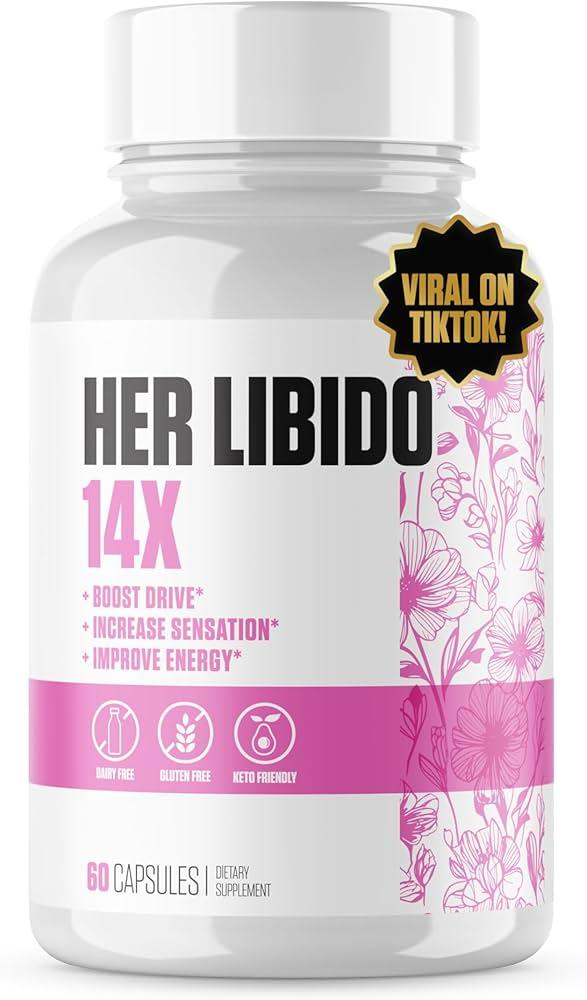In the intricate web of human health and well-being, few topics evoke as much curiosity—and often, confusion—as the role of hormones in our daily lives. Among these chemical messengers, testosterone stands out, not only as a vital player in male development but also as a key contributor to sexual desire and overall vitality. In recent years, testosterone therapy has emerged as a beacon of hope for many grappling with issues related to libido, sparking a surge in interest and dialogue. But what exactly does this therapy entail? Is it a panacea for diminished sexual drive, or does it come with potential risks? In this article, we will explore the nuances of testosterone therapy, shedding light on its benefits, challenges, and the evolving science that surrounds it, inviting readers to navigate this complex landscape with informed curiosity.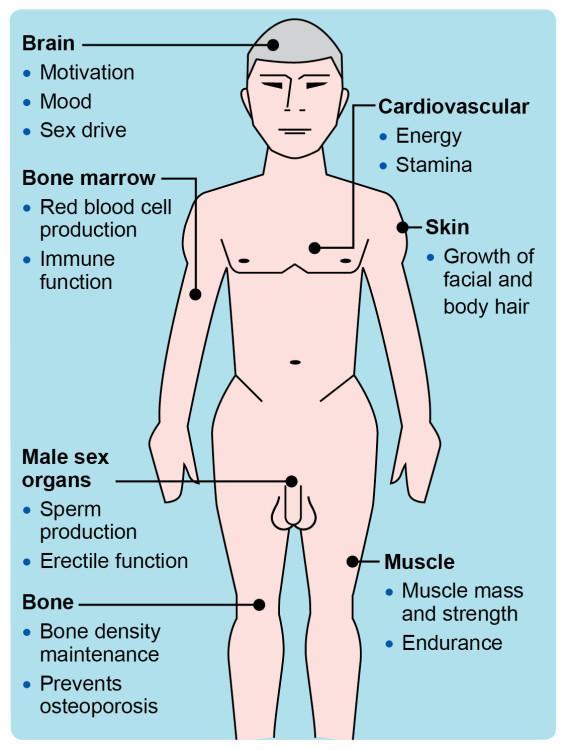
Understanding the Role of Testosterone in Sexual Desire
Testosterone is often hailed as a pivotal hormone for both men and women, significantly influencing sexual desire and arousal. As a key player in the endocrine system, testosterone helps regulate not just libido but also energy levels, mood, and muscle mass. A decline in testosterone levels, which can occur due to aging, lifestyle factors, or health conditions, can lead to diminished sexual drive. This complex interplay highlights the importance of understanding how testosterone affects sexual health and wellness, shedding light on why testosterone therapy is increasingly sought after as a solution for low libido.
When considering testosterone therapy, it’s essential to grasp how this treatment can impact sexual desire. By restoring optimal testosterone levels, individuals often experience several benefits that may enhance their erotic experiences. Some potential outcomes of effective therapy may include:
- Increased libido: A notable uptick in desire for sexual activity.
- Improved arousal: Enhanced physical and emotional responses to sexual stimuli.
- Greater self-confidence: Boosted self-esteem contributing to a more fulfilling sex life.
- Balanced moods: Reduction in anxiety and depression, which can impede sexual interest.
Exploring testosterone therapy requires a collaborative approach with healthcare providers. Monitoring levels, considering individual health status, and discussing potential side effects are crucial for tailoring the most effective treatment for each person. Understanding these dynamics can empower individuals to make informed decisions about their sexual health and overall well-being.
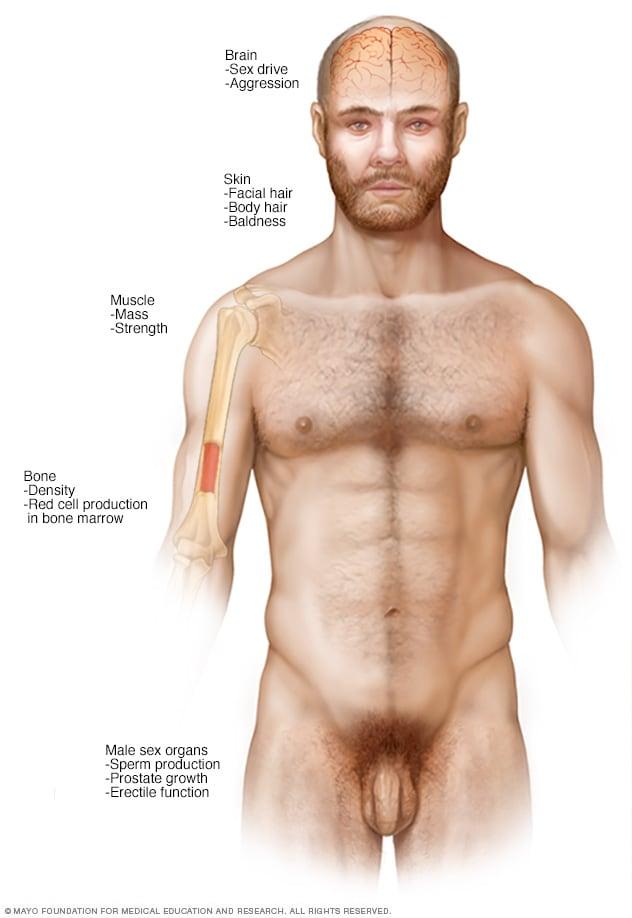
Identifying Symptoms of Low Testosterone and Low Libido
Understanding the signs of diminished testosterone levels and low libido can significantly impact one’s quality of life. Common indicators may include:
- Fatigue: A persistent feeling of tiredness that doesn’t resolve with rest.
- Reduced Muscle Mass: Noticeable decreases in strength or physical endurance.
- Decreased Bone Density: An increased risk of fractures or osteoporosis.
- Changes in Mood: Feelings of depression, irritability, or difficulty concentrating.
- Reduced Libido: A marked decline in sexual desire, which can affect relationships.
Additionally, recognizing physical changes can be crucial for early intervention. Men experiencing one or more of the following symptoms should consider consulting a healthcare professional:
- Weight Gain: Unexplained increase in body fat, particularly in the abdominal area.
- Increased Fatigue: Chronic tiredness that impacts daily activities and motivation.
- Sleep Disturbances: Issues such as insomnia or excessive sleepiness.
| Symptom | Possible Impact |
|---|---|
| Fatigue | Reduced productivity and focus |
| Decreased Libido | Strained relationships and intimacy issues |
| Mood Changes | Disruption in emotional well-being |
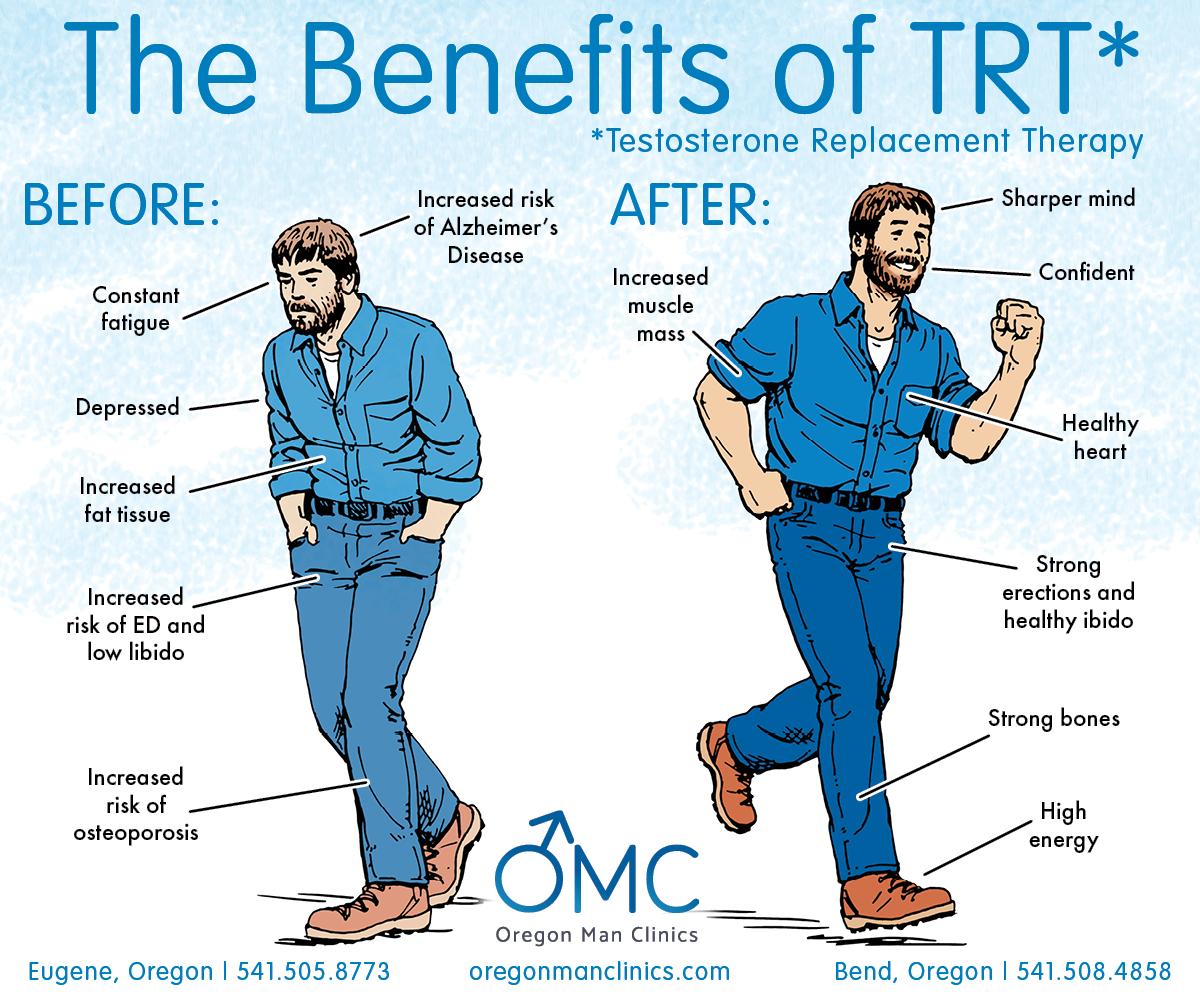
The Benefits of Testosterone Therapy for Enhancing Sexual Health
For many individuals, testosterone therapy can be a game-changing solution for revitalizing sexual health and intimacy. One of the primary benefits of this therapy is its potential to restore libido, especially in those experiencing a decline due to age or medical conditions. By increasing testosterone levels, patients often report a renewed desire for sexual activity, which can significantly enhance overall relationship satisfaction. Furthermore, the emotional benefits of improved sexual function can lead to greater confidence and a more profound connection with partners.
Moreover, testosterone therapy isn’t just about boosting libido; it also plays a crucial role in overall sexual function. Improved testosterone levels can contribute to better erectile function, leading to more satisfying sexual experiences. Here are some additional advantages of testosterone therapy:
- Enhanced Performance: Improved stamina and energy during intimacy.
- Increased Satisfaction: Greater pleasure and fulfillment from sexual experiences.
- Emotional Well-Being: Enhanced mood and reduced anxiety related to sexual performance.
| Benefit | Description |
|---|---|
| Increased Libido | Restores the desire for sexual activity. |
| Improved Erectile Function | Supports better blood flow and erection quality. |
| Boosted Confidence | Improved self-esteem and sexual confidence. |
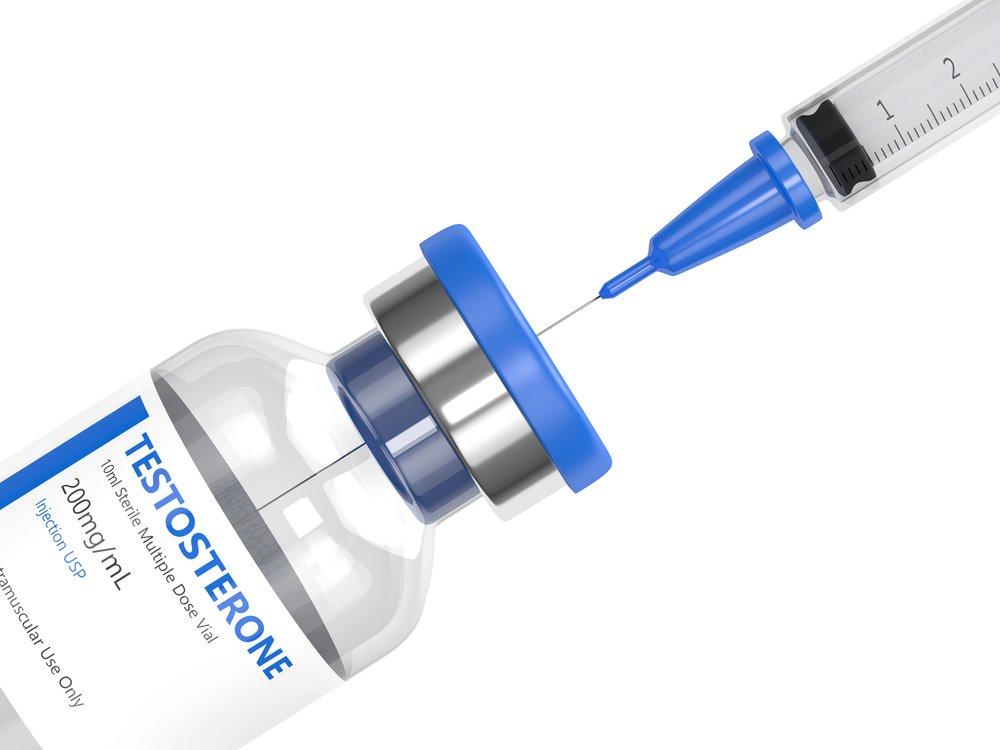
Exploring Different Forms of Testosterone Replacement Therapy
Testosterone Replacement Therapy (TRT) manifests in various forms, each tailored to different physiological needs and lifestyles. The most common options include injections, gels, patches, and pellets. Injections, typically administered bi-weekly or monthly, deliver fast-acting testosterone but may require regular medical visits. Gels offer the convenience of daily application, allowing for a steady release of hormone into the bloodstream, yet they necessitate caution to avoid skin contact with others. Patches are another viable alternative, providing an easy, transdermal delivery method, while pellets, inserted under the skin, deliver consistent doses over several months, eliminating the need for frequent administration.
The side effects and benefits of each form can vary significantly. Patients often weigh the impacts on their libido, energy levels, and overall well-being. A side-by-side comparison of options based on common criteria can aid in decision-making:
| Form | Administration Frequency | Ease of Use | Libido Impact |
|---|---|---|---|
| Injections | Every 2-4 weeks | Requires appointment | Quick boost |
| Gels | Daily | Easy to apply | Steady level |
| Patches | Daily | Simple | Consistent |
| Pellets | Every 3-6 months | Minimal maintenance | Long-lasting |
Potential Risks and Side Effects of Testosterone Treatment
While testosterone therapy can offer significant benefits for libido enhancement, it is important to recognize that it may also come with potential risks and side effects. Patients considering this treatment should be aware of the following common concerns:
- Heart Risk: Some studies have suggested an increased risk of cardiovascular problems, including heart attacks and strokes.
- Hormonal Imbalance: Over-supplementation can lead to imbalances, affecting mood and emotional stability.
- Skin Reactions: Symptoms may include acne or other skin issues, particularly when doses are not managed properly.
- Reduced Fertility: Testosterone treatment might suppress sperm production, leading to temporary infertility.
- Liver Damage: Though rare, there are reports of liver complications associated with testosterone supplements.
To better illustrate these potential side effects, the table below summarizes the associated risks with testosterone therapy:
| Potential Risk | Description |
|---|---|
| Cardiovascular Issues | Increased risk of heart attack and stroke |
| Mood Swings | Possible mood instability or aggression |
| Skin Problems | Acne or oily skin |
| Infertility | Reduction in sperm production |
| Hepatic Concerns | Potential for liver damage |
Personalizing Your Testosterone Therapy Journey
When embarking on testosterone therapy, understanding that each individual’s journey is unique is crucial. Factors such as age, lifestyle, and existing health conditions can greatly influence the outcomes of treatment. Hence, it’s essential to engage in open conversations with healthcare providers to discuss personal goals and expectations. Consider exploring variables that may impact your libido, including:
- Diet – Adopting a balanced diet rich in nutrients can support overall hormonal health.
- Exercise – Regular physical activity not only boosts testosterone levels but also enhances mood and libido.
- Sleep quality – Ensuring adequate rest is vital for hormone regulation and sexual health.
Monitoring your progress throughout therapy is equally important. Regular check-ins with your physician can help tailor your treatment to suit your evolving needs. Keeping a record of any changes in libido, mood, or energy levels can assist in fine-tuning your therapy. Below is a simple chart to help track your significant changes:
| Date | Libido Rating (1-10) | Comments |
|---|---|---|
| Week 1 | 5 | Initial treatment phase |
| Week 4 | 7 | Noticed improvement |
| Week 8 | 8 | Significant increase in desire |
Integrating Lifestyle Changes for Optimal Libido Enhancement
Enhancing libido through lifestyle changes can be as effective as considering testosterone therapy. It’s essential to adopt holistic approaches that prioritize both physical and mental well-being. To achieve this, individuals can focus on the following key areas:
- Regular Exercise: Engaging in physical activity not only boosts stamina and energy levels but also enhances mood and reduces stress, creating a conducive environment for healthy libido.
- Balanced Nutrition: Consuming a diet rich in whole foods, healthy fats, and proteins can improve overall hormonal balance. Consider incorporating:
| Food | Benefits |
|---|---|
| Avocado | Rich in healthy fats and vitamin E, which may enhance hormone production. |
| Oysters | High in zinc, essential for testosterone production. |
| Dark Chocolate | Contains flavonoids that improve blood circulation. |
Additionally, prioritizing mental health is crucial. Stress management techniques such as meditation, mindfulness, or yoga can substantially improve sexual desire. Quality sleep should not be overlooked, as inadequate rest can significantly hinder testosterone levels and overall mood. By integrating these lifestyle changes, individuals can foster a healthier body and mind, further enhancing their libido and well-being.
Q&A
Q&A: Understanding Testosterone Therapy for Libido
Q1: What is testosterone therapy, and how does it relate to libido?
A: Testosterone therapy involves the administration of testosterone, a key hormone in both men and women, to address various health conditions. One of its notable benefits is the potential to enhance libido — or sexual drive. In men, low testosterone levels can lead to a decrease in sexual desire, while women may also experience reduced libido due to hormonal imbalances. Testosterone therapy aims to restore these levels, potentially revitalizing sexual interest.
Q2: Who qualifies for testosterone therapy?
A: Individuals with clinically low testosterone levels, typically diagnosed through blood tests and related symptoms, may qualify for testosterone therapy. Common signs include diminished libido, fatigue, and mood changes. Always consult with a healthcare provider to assess symptoms and determine if therapy is appropriate.
Q3: What forms does testosterone therapy take?
A: Testosterone therapy comes in several forms, including injections, topical gels, patches, and pellets. Each form has its advantages and disadvantages depending on individual preferences and medical advice. Some may prefer the convenience of gels, while others may opt for the consistency of injections.
Q4: Are there potential side effects of testosterone therapy?
A: Yes, while testosterone therapy can have significant benefits, it also carries potential side effects. These can include acne, mood swings, hair loss, and increased risk of cardiovascular issues. It’s crucial to monitor these effects under a physician’s guidance to optimize the therapy and mitigate any adverse reactions.
Q5: How quickly can one expect results in terms of libido?
A: The timeline for experiencing an increase in libido can vary greatly among individuals. Some may notice improvements within a few weeks, while others may take several months to experience noticeable changes. Consistency in therapy and follow-up with a healthcare provider are essential for assessing progress.
Q6: Can testosterone therapy improve sexual function beyond libido?
A: Beyond enhancing libido, testosterone therapy may also positively influence other aspects of sexual function, including erectile quality in men and sexual arousal in women. Additionally, there can be improvements in energy levels, mood, and overall quality of life, further contributing to a healthier sexual experience.
Q7: Is testosterone therapy suitable for everyone?
A: Not necessarily. Testosterone therapy is not suitable for everyone and may pose risks for individuals with certain conditions such as prostate cancer, heart disease, or severe sleep apnea. A thorough evaluation by a healthcare provider is essential to determine if therapy is a safe and beneficial option.
Q8: Are there alternative treatments for low libido besides testosterone therapy?
A: Yes, there are alternative treatments available. Lifestyle modifications—like improved diet, exercise, weight management, and stress reduction—can play a significant role in enhancing libido. Additionally, psychological interventions, counseling, and the use of other hormonal therapies might be appropriate depending on individual circumstances.
Q9: How can one approach the topic of testosterone therapy with a healthcare provider?
A: Open communication is key. Start by discussing any symptoms you’re experiencing and how they affect your quality of life. Be prepared to discuss your medical history and any concerns you may have. A collaborative approach helps tailor the conversation to your specific needs and opens the door to exploring various treatment options.
Q10: What should one keep in mind when considering testosterone therapy?
A: It’s essential to approach testosterone therapy as a part of a comprehensive health strategy. Consider lifestyle factors, potential side effects, and the importance of regular follow-ups. The goal should always be a balanced and informed decision, leading to a healthier, more fulfilling life.
In Conclusion: Testosterone therapy may offer relief for those facing low libido due to hormonal imbalances, but it’s essential to navigate this path with professional guidance, thorough understanding, and consideration of personal health circumstances. As with any treatment, education and dialogue with healthcare providers are crucial for the best outcomes.
To Conclude
the exploration of testosterone therapy for libido opens up a complex yet fascinating dialogue about the interplay between biology, emotion, and desire. As we peel back the layers of hormonal influence on sexual health, it becomes clear that this therapy is not a one-size-fits-all solution. For some, it may serve as a key to reinvigorating intimacy and reclaiming lost vitality, while for others, it might simply offer insights into the multifaceted nature of libido.
As medical advancements continue to evolve, understanding the individual needs and health contexts of those considering testosterone therapy remains crucial. It is essential to consult healthcare professionals who can provide tailored advice, conduct thorough evaluations, and guide discussions around the same. After all, the journey towards revitalizing desire is as unique as the individuals pursuing it.
Ultimately, as we navigate the shifting tides of sexual health and wellness, fostering open conversations will empower us all to make informed choices that resonate with our personal experiences. Whether through therapy, lifestyle adjustments, or alternative approaches, the quest for a fulfilling sex life deserves compassion, knowledge, and respect. Let us embrace each new discovery along the way, celebrating the diversity of human sexuality and the path to rediscovering intimacy.

